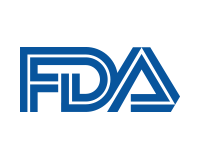United States Department of Health and Human Services

United States Food and Drug Administration: Publications
Date of this Version
2017
Document Type
Article
Citation
Pharmacoepidemiology and Drug Safety 2017; 26: pp. 827–836, DOI: 10.1002/pds.4227.
Abstract
Objective The objective of this study was to examine the impact of the Food and Drug Administration’s boxed warning on the utilization of depot medroxyprogesterone (DMPA).
Methods From the IMS Lifelink data (2001–2009), we identified DMPA and oral combined hormonal contraceptive (CHC) users without a prescription claim 6 months before and after the first and last claim. Episodes were defined as all contiguous claims with no more than 90- day DMPA or 30-day CHC between claims. Days’ supply (CHC) and 90-day duration (DMPA) was used to determine episodes. We used interrupted time series to evaluate changes in the mean episode length and proportion of episodes >2 years before and after the Food and Drug Administration’s November 2004 boxed warning. Stratified analyses by birth cohort were conducted.
Results From 2001 to 2009, 126 528 DMPA and 651 356 CHC episodes were used for segmented regression. For the DMPA cohort, there was an immediate decline in the mean duration (-34.7 days [confidence interval: -45.4 to -24.1]) and episodes >2 years (-1.9% [confidence interval: -2.9% to -1.1%]) after the boxed warning. We did not observe any change in mean duration or episodes >2 years for the CHC cohort. The largest declines in mean duration and proportion >2 years were seen with the oldest women.
Conclusion We observed a modest decline in the mean duration and episodes>2 years for DMPA use immediately after the boxed warning not observed among CHC users. In the stratified analysis, we saw declines in the duration of use >2 years in all age groups, except adolescents who continue to use DMPA for longer than 2 years.
Included in
Dietetics and Clinical Nutrition Commons, Health and Medical Administration Commons, Health Services Administration Commons, Pharmaceutical Preparations Commons, Pharmacy Administration, Policy and Regulation Commons


Comments
U.S. government work.